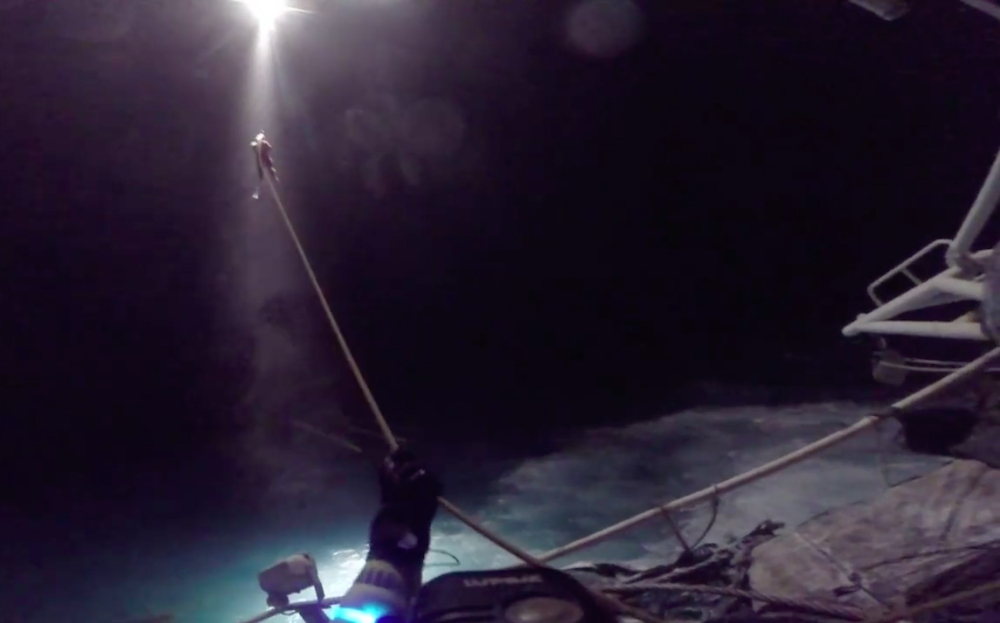Norwegian Coast Guard in race against ice after trawler runs aground near Svalbard
Rescuing the crew of the ‘Northguider’ was quick, if demanding, operation. Other aspects of the ship’s grounding will take longer to sort out.

After conducting a dramatic operation to save the lives of 14 fishermen aboard a trawler that had run aground in the narrow strait between the Svalbard islands of Spitsbergen and Nordaustlandet on Friday, Norwegian officials say their efforts will now center on ensuring that 300,000 liters of diesel the vessel is carrying do not spill into the waters of the nature reserve where it was sailing.
The Hinlopen Strait is a breeding and feeding ground for a wide range of Arctic animals, including seals, walrus and a number of bird species. Environmentalists warn that even small amounts of diesel in the water could be harmful to wildlife.
The coastal administration has downplayed those concerns, arguing that the fuel would evaporate rapidly if released. Nevertheless, it said it would work quickly to begin removing the fuel from the Northguider’s tanks once the Coast Guard vessel Svalbard arrived today after a four-day voyage from its home station on the Norwegian mainland, some 1,600 kilometers from where the ship ran aground.
The crew of the Svalbard will also seek to determine whether the Northguider is taking on water as suspected. Crew members reported seeing water in the ship’s engine room before being rescued from the listing vessel, but they were unable to identify where it had come from, just as there was no indication of why the captain lost control.
If the Northguider’s hull has been breached, it would slow efforts to tow it out of the Hinlopen Strait. That will put the salvage operation — already hindered by high winds, snow, temperatures as low as minus 11 degrees Fahrenheit (minus 23 degrees Celsius), constant darkness and intermittent communications due to the high latitude — at an even greater disadvantage.
Of most concern is the encroaching sea ice, which could entomb the Northguider in the coming days. The ship is currently in open water, but an aerial inspection on Sunday reported ice forming around the ship and officials now fret there may not be time to tow it out of the strait.
Images recorded on Sunday by the Joint Rescue Coordination Center of Northern Norway show the Northguider remains in place, while also giving an indication of the working conditions the crew of the Svalbard will face
The situation has reopened discussion of whether Norway’s search-and-rescue capacity in the waters around Svalbard is sufficient to meet the growing threat of such incidents. Expanded fisheries, resource exploration and shipping all mean more ship traffic.
Normally, operations are managed by the Sysselmann, the territory’s governing authority. And while the crew was removed from the ship using the authority’s two helicopters, the operation was described as being at the far limit of what was possible.
The Sysselmann is also responsible for conducting maritime rescue and salvage operations, but its vessel is laid up during the winter months due to budget cuts. Meanwhile, the Coast Guard had a vessel in the area, but it was not classified to sail in winter ice.